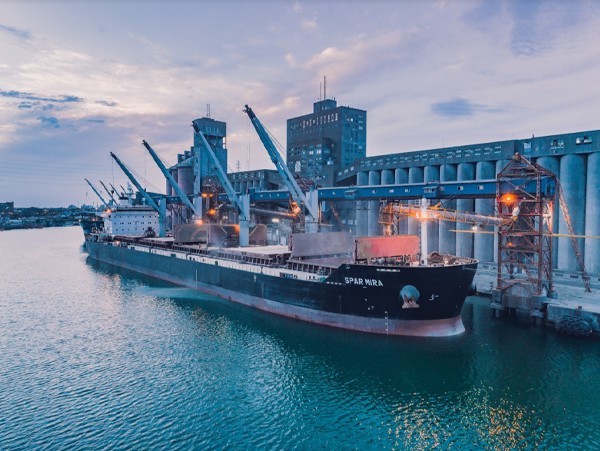Ships that support developing economies are struggling to make the transition, writes Thomas Zaidman, Managing Director, Sagitta Marine SA.
We live in an asymmetric world and nowhere can this be seen more clearly than in national responses to climate change and the energy transition. The shipping industry displays a similarly uneven attitude to the nature of the problem and potential solutions.
The industry’s leading edge are setting an admirable example, with projects embracing new fuels, energy efficiency and even new operating models. It is these leaders that we hear from most often, exhorting the need for change, innovation and collaboration.
Spare a thought though, for the owners and operators that still carry the majority of the world’s cargoes, the raw materials and semi-finished products that construct and sustain the world economy. Broker data puts sub-Panamax vessels at 63% of the global dry bulk fleet.
The energy transition that the world so desperately needs is happening only slowly in this sector. Many developing countries do not have the luxury of choice; they rely on small ships and limited port infrastructure to keep the lights on.
Ask the average small vessel owner or operator – and let’s not forget they are by far the majority – about climate change and the majority will express concern and a desire to do better. But this intent will be tempered by a list of realities that are much less likely to apply to the larger, international trading conglomerates.
Initiatives on green finance and insurance are welcome but for small and medium sized operators they raise costs without delivering a benefit that can be realised on the balance sheet. The exposure that these companies experience in daily business is already high, making the means to finance new, cleaner vessels potentially more expensive does not encourage innovation.
Investors in dry bulk in particular tended to come close to the end of the queue when it comes to shipyard slots for understandable reasons. Higher value vessels, increasingly featuring dual fuel engines and energy saving devices will always be preferred by yards over commodity carriers.
But fail to provide the levers that effect positive change and we cannot be surprised when it doesn’t happen. The same squeeze on demand is happening at repair yards where conversions and retrofits are booming but operators of small ships may have limited options.
Data from Clarksons shows that the number of ships featuring an energy efficiency technology (EET) device is just 8,700 out of the global fleet. That might be 33% in gross tonnage terms but it masks the skew towards larger ships where fuel consumption savings are potentially greater.
In tankers, more than 50% of VLCCs are said to have an EET fitted, while just 20% of medium range tankers – the workhorses of the tanker fleet – do so. The picture is repeated in the dry bulk sector, where over 45% of Capesize bulkers are fitted with an EST, but little more than 11% of the Handysize fleet feature one.
Even in the container sector, where the demand for fuel efficiency is greatest, while over 80% of 12,000+teu vessels have an EET, for ships under 3,000-teu capacity the level is just over 16%.
Clarksons says that around 70% of ships fitted with some form of EET had the technology installed at the newbuilding stage, a trend that has increased over time. Around 60% of tonnage delivered over the last three years has been EET fitted, up from 25% 10 years ago it said.
Small ship operators are struggling to make similar investments, not least because the commodity cargoes they carry rarely attract the kind of premiums that enable higher costs to be passed on.
As Vasileios Gkikas of class society ABS pointed out on Splash 24/7, from a practical point of view, the design of bulk carriers, particularly smaller ones with deck cranes, presents technical hurdles to conversions for new fuels or large scale EETs.
However, because of the predicted trajectory of the energy transition, with carbon intensive cargoes declining as we pass 2030 and approach 2050, retrofitting will need to overtake fleet renewal if ships are to comply with tightening regulations.
Despite carbon reduction goals and net zero targets, the speed and extent of the decarbonisation process will depend on factors that are to some extent outside of shipping’s control.
The fact that it is coming is not in doubt but we need to accept that not all sectors of the industry are created equal. Their contributions are different and so are their challenges.
The IMO has stated that it wants to achieve a just and equitable transition, designed to be environmentally effective, procedurally fair, socially just, globally equitable and technologically inclusive. This principle should apply equally to all sectors of the shipping industry too.



